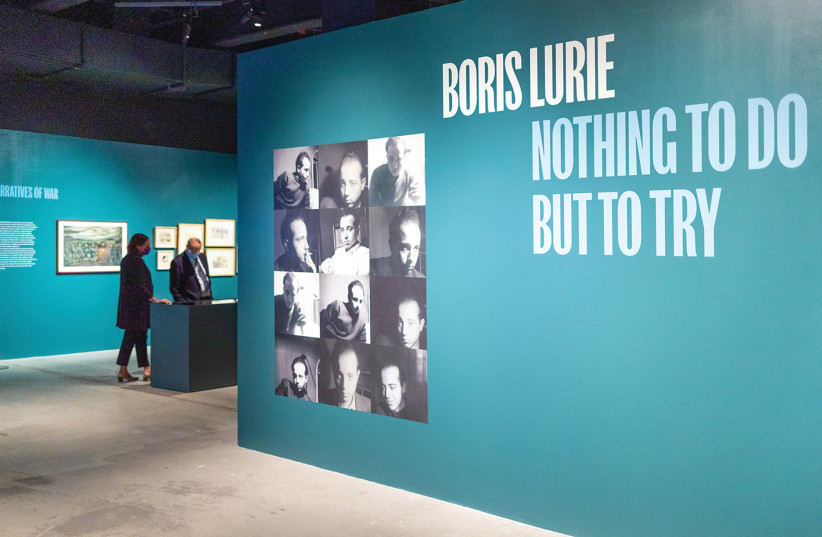Just 53 km. east of the Museum of Jewish Heritage – A Living Memorial to the Holocaust (MJH) is the Holocaust Memorial and Tolerance Center of Nassau County, a nonprofit where I serve.
Both institutions work tirelessly to teach thousands of children each year not only what happened in the Holocaust, but – we both hope – how to make a more tolerant world in which such a thing is less likely to happen again. Each year, for example, our own Claire Friedlander Awards spotlight middle and high school students who have shown what it means to be an “upstander” – standing up for others in their very diverse Long Island communities.
Despite the two organizations’ striking similarities, I find myself in personal disagreement with the Museum of Jewish Heritage’s seemingly principled inability to host this year’s Jewish Leadership Conference. The Jewish Leadership Conference is held annually to consider the challenges facing the Jewish people and Israel. It is hosted by the Tikvah Fund, a private, conservative-leaning educational and cultural institution.
Thus, the MJH would likely merely be renting its space to Tikvah and would not have any part in choosing speakers or topics. Ron DeSantis had been invited as the governor of the state with the third-largest Jewish population in the United States. He was to speak on the growing vibrance and energy of Jewish life in Florida.
Tikvah reports that they were told by MJH to either disinvite DeSantis – a very unpopular figure in Democratic and liberal circles – or else find some other venue to have their conference. MJH reportedly explained that DeSantis didn’t align with the museum’s values and its message of inclusivity and also that the museum doesn’t do politics.

The museum has offered no clear public explanation of what those purported statements were intended to mean. It did recently tweet that DeSantis would be welcome to come, in order to be educated by the museum through an upcoming exhibit.
Nazism was a political movement. Recognizing that, I believe no institution can aspire to prevent something like it without engaging a diverse spectrum of the political landscape. Absolutely commitment to being nonpartisan in this common work is, in my view, the only appropriate stance. Locking out a political figure on account of his politics is partisanship and contributes nothing to understanding the political aspects of the Holocaust or present-day antisemitism. As a practical matter the imperative is to create common purpose around shared mission, not to seek moral purity and end up preaching into an echo chamber.
Yes, some political or religious leader might be simply too evil for a Holocaust education institution to allow on their grounds. Governor Ron DeSantis is, of course, not in that category.
In fact, I would encourage them to welcome him precisely because of the history of the Holocaust. The Nazis came to power largely due to the political instability in Germany in the 1930s and that some of the very same kinds of political instability are afoot today in the US: economic woes, extremism, increasing reliance on presidential decree and political parties with no clear majorities. Political tribalism helps fuel political instability and in turn the threats of extremism.
Antisemitism thrives on social division and resentment. I would much rather hear DeSantis out than lock him out. To, in effect, tell him – and all the people he represents – you’re too bad to be in this space. In order to do the work of building coexistence and promoting tolerance with any hope for success, we must actively work against political partisanship and, worse still, growing political tribalism.
Also key to why Holocaust education centers must fiercely maintain a commitment to being politically inclusive – not partisan – is the fear of losing integrity through even the appearance of partisanship. The Holocaust must not become a brand, a seal of approval or – in this case – disapproval.
As others have pointed out, the Museum of Jewish Heritage has not only rented space to but has itself sponsored prominent progressive and Democratic leaders, such as Alexandria Ocasio-Cortez, Andrew Cuomo, Bill de Blasio and Chuck Schumer. They don’t “do politics?” That’s a hard case to make if you bar the door to Governor DeSantis but welcome AOC – also controversial and widely disliked, assuming you get out of progressive and liberal circles.
Though the Museum of Jewish Heritage and the Holocaust Memorial and Tolerance Center where I serve are just 33 miles apart and are united in a core mission of education and tolerance promotion, I find myself very far apart in how I wish they would have handled this event. In my view, an important museum dedicated to tolerance has temporarily put intolerance on exhibit, undermining their essential mission, which I share.
The writer is a distinguished senior fellow at the Holocaust Memorial and Tolerance Center of Nassau County, and a professor at Stony Brook University (SUNY).
